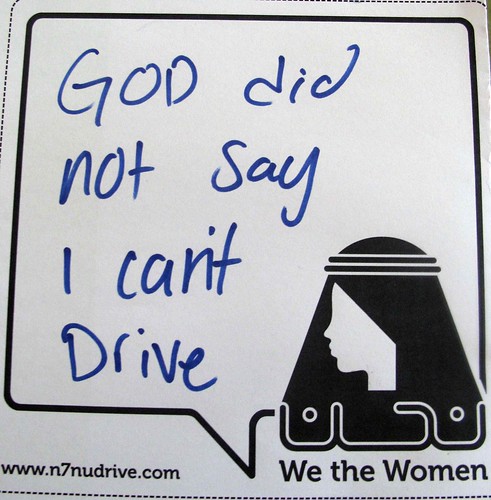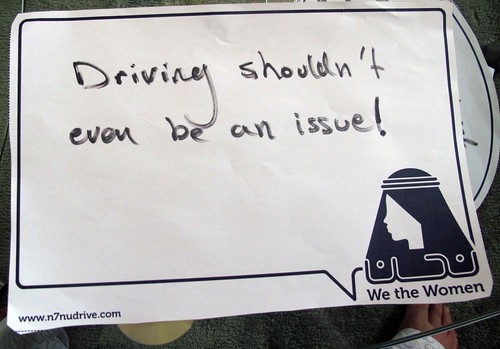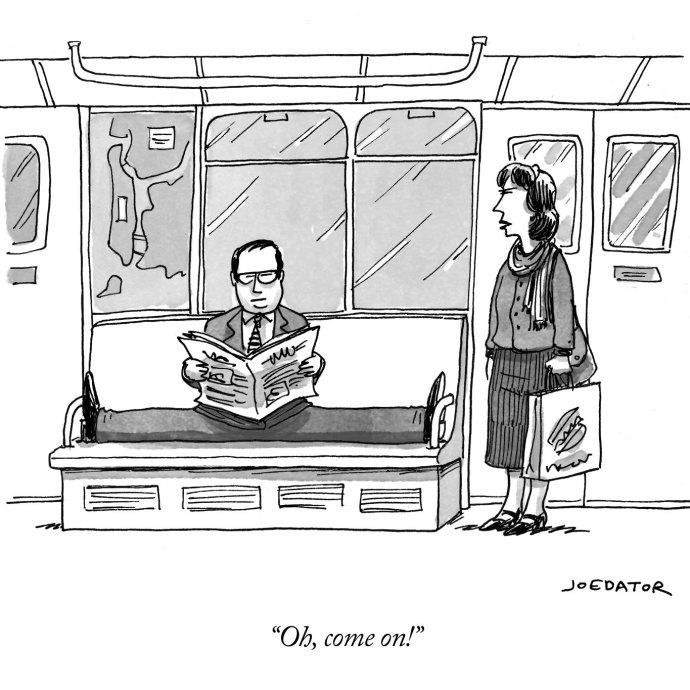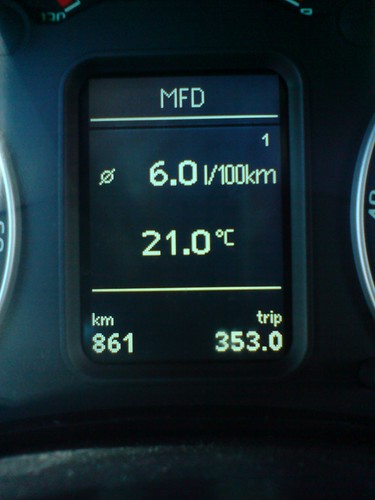(Source: Lede – New York Times)
A young Saudi woman has launched an online campaign using YouTube,Facebook and Flickr to get Saudis to discuss, and possibly reconsider, the ban on women drivers in the Kingdom.

Image: "We The Women" campaign @ Flickr
As an article published last month in the English-language Saudi newspaper Arab News explained, the project, called “We the Women,” was started by a 24-year-old Saudi woman studying design in the United States who asked to be identified only by her first name, Areej. According to Arab News, she started thinking about how onerous the ban was when she saw that her retired father was forced to spend much of his time “chauffeuring her, her mother and three sisters.”

Image: "We The Women" campaign @ Flickr
The core of the campaign is a set of stickers, in the form of speech bubbles and bumper stickers, which Saudi men and women are encouraged todownload from Flickr, fill in with their thoughts, and then display. Some people are also taking pictures of what they write on their stickers and then adding those photographs to the project’s Flickr set of “Declarations.”
Printed at the foot of each sticker is the simple message: “To drive, or not to drive, that is the question.”
As the project description on Flickr explains, the woman behind it wants to hear other voices, not just amplify her own:
We the Women is a campaign that aims to raise the issue of women driving in Saudi Arabia and to start a real, public conversation. The We the Women declaration bubbles and bumper stickers were created as a space for self expression. Feel free to fill it out with your opinion on the issue and stick it wherever you feel it needs to be.
The images of the speech bubbles posted on Flickr so far have already sparked debate. Here is part of an exchange the woman running the project had in the comments thread beneath a speech bubble that said, simply, “I don’t like the backseat!” with two other Flickr users, calling themselves Mac Moo and Mr. Nice 2009 (web punctuation intact):
Mac Moo says:
lol….my dear….u are goood at writing,,,but its for your own safety… women must not left alone…in islam…and thats for good of both man and women…. you know how exactly west world is…..i think the government is doing it rite.
N7nu – We the Women says:
just to clarify…This is a user submission. I did not write this. Secondly, do you think that if women were allowed to drive we would be westernized as a society? How come women in the time of the prophet were allowed to ride camels. Isn’t that the same thing?
Click
here to read the entire article.
Note: TransportGooru extends full support for this campaign and wish the very best to all the women of Saudi Arabia engaged in this campaign. Hope the Kingdom’s rulers take a note of your demands and understand that it is not just a “wish” but one of a fight for a fundamental right. Quoting
President Obama’s famous words about fighting for a cause “And because that someone stood up, a few more did. And then a few thousand. And then a few million. And together, they changed the world.” God speed & good luck!






